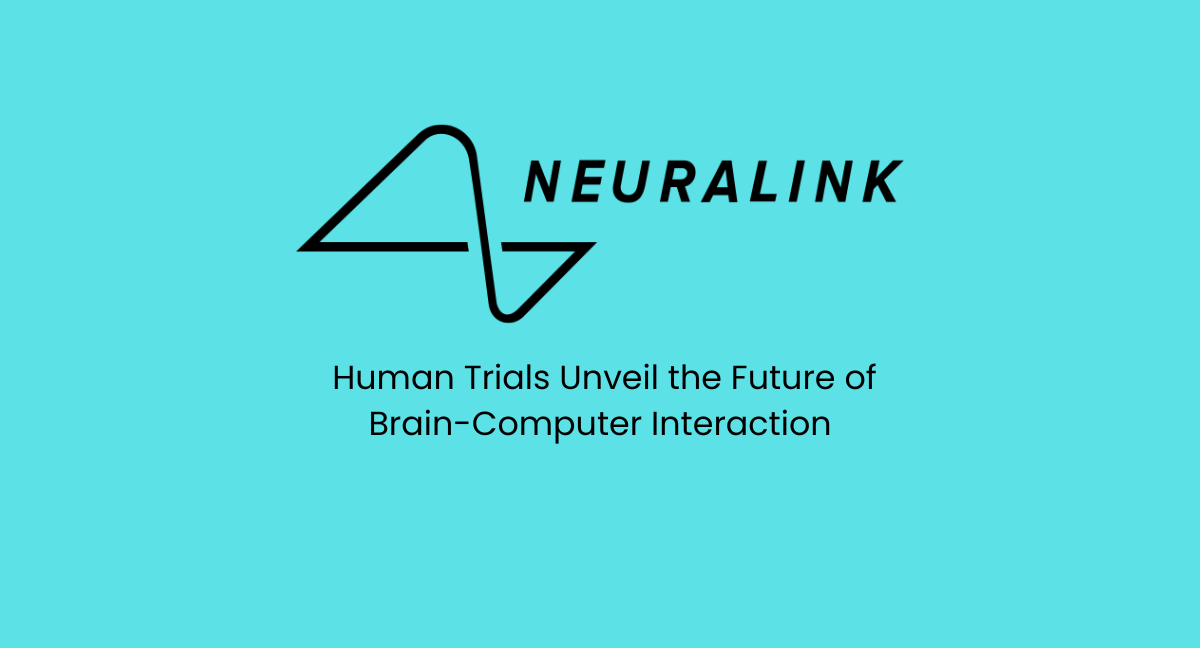Neuralink, spearheaded by Elon Musk, has embarked on an innovative venture. The brain implant startup has secured approval from an independent review board, marking a pivotal moment as it opens its doors to human recruits for the first time.
The Human Experiment:
Neuralink's quest to fuse the capabilities of the human brain with cutting-edge technology has taken a significant step forward. With the green light from an independent review board, the company is actively seeking participants for its inaugural human trial—a six-year research study designed to test the capabilities of its revolutionary brain chip.
Connecting Minds and Machines:
Neuralink's core mission revolves around developing a brain-machine interface that seamlessly connects humans and machines. Through strategically implanted devices in the brain, participants in the trial aim to interact with computers using their thoughts. The primary focus is on restoring motor function for individuals with paralysis and exploring potential treatments for neurological disorders such as Alzheimer's, Parkinson's, and dementia.
A Regulatory Journey:
Neuralink faced obstacles in its pursuit of human trials, with a denial of fast-track approval last year. However, in May of this year, the FDA granted an investigational device exemption (IDE) for clinical studies, propelling Neuralink into a new phase of exploration. The startup is now actively reviewing applications for individuals willing to join this groundbreaking endeavor.
A Glimpse into the Future:
The current focus is on patients grappling with quadriplegia due to spinal cord injuries or ALS. Neuralink's innovative Brain-Computer Interface (BCI) is set to be implanted in specific brain regions controlling movement. The ultimate goal of the study is to empower participants to manipulate a computer cursor or keyboard using their thoughts alone—a prospect that could redefine the boundaries of human-computer interaction.
Read More:

Neuralink Expands Horizons: First-in-Human Clinical Trial Opens New Avenues
In an exciting development, Neuralink proudly announces the green light from an independent institutional review board and its first hospital site to commence recruitment for the groundbreaking PRIME Study. This study, aptly named the Precise Robotically Implanted Brain-Computer Interface (BCI), is a pivotal investigational medical device trial focused on Neuralink's fully-implantable, wireless brain-computer interface.
Key Points for Readers:
- The PRIME Study Unveiled:
- Neuralink's PRIME Study, a testament to innovation, signifies a monumental leap in its mission to create a generalized brain interface.
- It is designed to evaluate the safety and functionality of the N1 Implant and R1 Robot, integral components of Neuralink's cutting-edge BCI technology.
- A Look into the Technology:
- The study employs the sophisticated R1 Robot to delicately position ultra-fine and flexible threads of the N1 Implant in a brain region controlling movement intention.
- The N1 Implant, once in place, becomes cosmetically invisible and wirelessly transmits brain signals to an app, deciphering movement intention—a futuristic approach to human-computer interaction.
- Empowering Those with Paralysis:
- A central goal of the BCI technology is to empower individuals with paralysis, particularly those with quadriplegia due to cervical spinal cord injury or ALS.
- The initial objective is to provide users with the capability to control external devices, such as a computer cursor or keyboard, using their thoughts alone.
- FDA Recognition:
- The PRIME Study operates under the umbrella of the investigational device exemption (IDE) granted by the FDA in May 2023, signifying a significant regulatory milestone.
- Qualification Criteria:
- Individuals facing quadriplegia due to cervical spinal cord injury or ALS are encouraged to explore the possibility of participating in this groundbreaking clinical trial.
- The study represents Neuralink's dedication to addressing unmet medical needs and restoring autonomy to those facing significant challenges.
As Neuralink embarks on this pioneering journey, this clinical trial not only opens doors for those with paralysis but also holds the promise of transforming the landscape of neurotechnology.
Neuralink's foray into the first-in-human clinical trial is an invitation to witness the convergence of science and humanity—a spectacle that may redefine the future of medical innovation.
We research, curate and publish daily updates from the field of AI. Paid subscription gives you access to paid articles, a platform to build your own generative AI tools, invitations to closed events and open-source tools.
Consider becoming a paying subscriber to get the latest!




